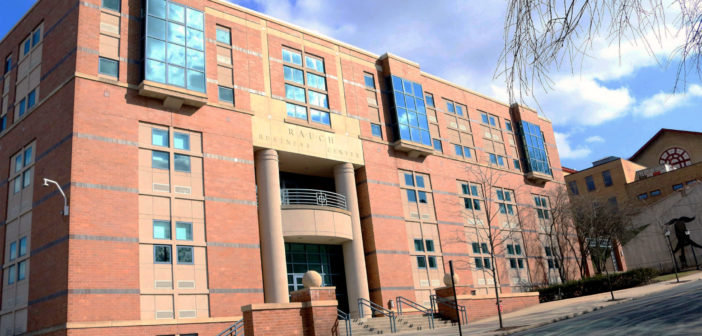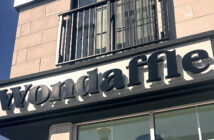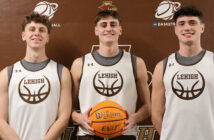When two cheat sheets were found in a finance exam testing room this semester, the consequences were felt by the whole class.
Professor Olena Nikolsko-Rzhevska has worked in Lehigh’s finance department since 2015 and taught two sections of Introduction to Finance this spring.
Nikolsko-Rzhevska said she was frustrated finding these sheets when the April 11 exam concluded and said those who admitted to cheating would receive a grade penalty on the exam.
“One thing cheaters or those who think about cheating don’t understand is this — they come here to Lehigh to increase their human capital, to grow, to invest in themselves, because, after all, they are the greatest project they will ever get to work on,” Nikolsko-Rzhevska said. “I can’t imagine getting into such an amazing school and actively avoiding learning.”
She told students if they decided to stay silent she would file a report with the Office of Student Conduct with photo evidence to be further investigated.
If both did not admit to academic dishonesty, there would also be no additional curve or extra credit for the class, regardless of the average.
“We all sometimes make mistakes, but the good thing is that you are getting this one chance to make things right, for yourself and everyone involved,” Nikolsko-Rzhevska said. “I know it takes a lot of strength to own up to your actions, but it is the right thing to do, especially given the alternative and the negative effect it has on the entire class.”
A day later, a follow-up was sent out, stating one student had reached out and admitted to cheating, but the other person never came forward.
Nikolsko-Rzhevska said cheating occurs every semester in her class, but this was the first time she found physical sheets.
For future exams, Nikolsko-Rzhevska said more proctors in the testing room or continuously patrolling the classroom could help stop possible cheaters. For now, she doesn’t plan to change anything.
“I think my class is already set up in a way that allows students to get a grade they are proud of,” Nikolsko-Rzhevska said. “I focus on reminding students just how bright they are and that they are fully capable of achieving any goal without cheating.”
Christopher Mulvihill, the associate dean of students, said the Office of Student Conduct receives between 70-90 academic dishonesty cases in any given academic year, mainly from faculty members.
When someone reports a case like this one, the office contacts the faculty member to discuss the situation with them. Mulvihill said they then meet with the students involved.
After the initial meeting, the University Committee on Discipline would hold a hearing.
He said they have two formats for hearings. The first is an academic integrity conference, which is used when an accused student admits responsibility for the charges and wishes to have appropriate sanctions imposed without a full hearing, and the second is a regular hearing.
The University Committee on Discipline includes faculty members, students and staff members, all trained by the Office of Student Conduct, Mulvihill said.
They follow the rules and regulations in the Code of Conduct and determine if students are responsible, and if so, impose appropriate educational sanctions.
Mulvihill said one of three sanctions is imposed if a student is found responsible.
A primary sanction ranges from a warning to an expulsion. An academic sanction usually results in the failure of a course. An educational sanction is a requirement to get help with research skills or citation, tailored to the accused student’s needs.
Brenna Thomas, ‘26, said many students found this particular instance of cheating unfair because there was no curve to the exam score.
“No one thinks it’s fair that one person can affect the grades of everyone in our section,” Thomas said. “I think overall, everyone is just frustrated because a lot of us take a lot of time to memorize the formulas for exams and someone just decided to try and take the easy way out.”






Comment policy
Comments posted to The Brown and White website are reviewed by a moderator before being approved. Incendiary speech or harassing language, including comments targeted at individuals, may be deemed unacceptable and not published. Spam and other soliciting will also be declined.
The Brown and White also reserves the right to not publish entirely anonymous comments.